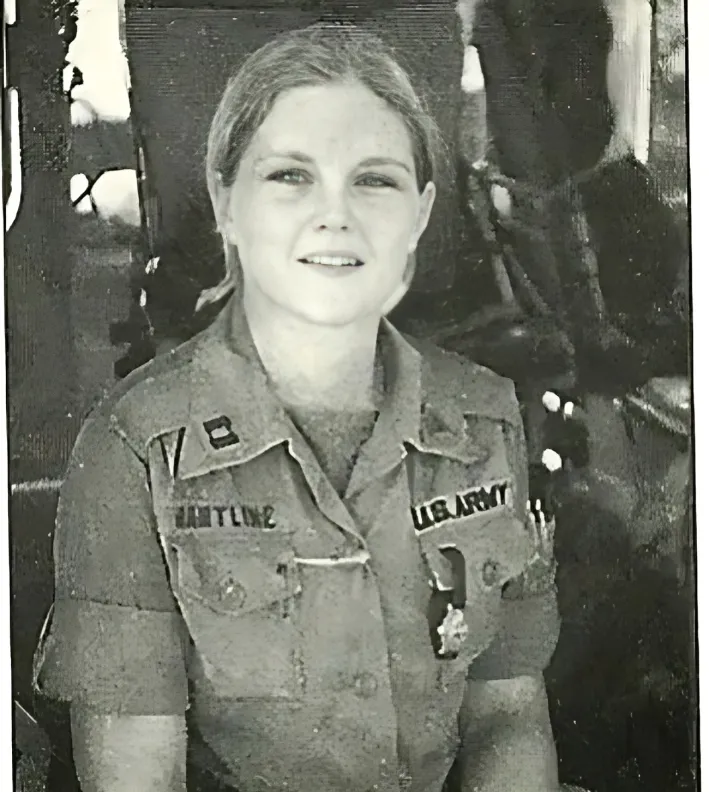The Homeless Man Who Gave Away His Last $20—and Changed His Life Forever 931

On a cold November night, Kate McClure found herself in a desperate situation. Driving alone on a highway outside Philadelphia, her car suddenly came to a halt—the gas tank was bone dry. She had no fuel, no immediate help, and no way to reach safety. Fear began to sink in as the night grew colder and darker.
It was in that vulnerable moment that fate brought her face to face with Johnny Bobbitt Jr. At 34 years old, Johnny was homeless, struggling daily just to survive. His appearance bore the marks of life on the streets—unshaven, weary, dressed in worn layers. And yet, despite his hardships, there was a light in his eyes that revealed something more enduring: a willingness to help.

Johnny noticed her stranded by the roadside and approached with caution, not wanting to frighten her. When Kate explained her situation, he realized she was truly in need. Without hesitation, Johnny reached into his pocket and pulled out the only money he had left—just twenty dollars. It was his last possession, meant to keep him fed for days. But to him, her safety mattered more.
Johnny walked to the nearest gas station, bought a can of fuel with his last $20, and returned to pour it into Kate’s car. That single act of kindness was not calculated, nor was it meant to earn him anything in return. It was pure generosity from a man who had almost nothing to give.
Kate was deeply moved. As she drove away, she couldn’t stop thinking about the stranger who had rescued her with such selflessness. Unlike many fleeting encounters, she felt this one demanded more. Days later, she returned to the spot where she had met Johnny, determined to find him again and say thank you properly.
When she did, her gratitude turned into action. Kate decided that his kindness deserved recognition, and more importantly, a chance at a new life. She and her partner created a campaign on GoFundMe, setting a modest goal of $10,000. The hope was simple: to raise enough for Johnny to have a safe place to sleep and some stability.
What happened next stunned everyone involved. The story of a homeless man spending his last $20 to help a stranger struck a chord with people across the world. The campaign went viral, spreading from local news to national headlines, and soon donations began pouring in from thousands of strangers who wanted to reward Johnny’s selflessness.
Within weeks, the fundraiser skyrocketed to nearly $400,000—far beyond anyone’s expectations. The outpouring of generosity revealed something extraordinary: one act of kindness had inspired thousands more. People saw themselves in Johnny’s gesture and felt compelled to continue the chain of compassion.
With the funds, Johnny’s life began to transform. He was able to purchase his own home, finally stepping out of the cycle of shelters and street corners. He also bought the truck he had long dreamed of, a symbol not just of transportation but of freedom and stability. For the first time in years, he could envision a future that wasn’t defined by struggle.
To safeguard the money and ensure it supported him long-term, two trust funds were established in his name, along with a bank account. These measures gave him a foundation—financial security he had never known. Johnny expressed deep gratitude, not just for the donations, but for the faith and kindness of people who had never even met him.
But perhaps what made Johnny’s story most powerful was not just what he received, but what he chose to give back. Instead of stopping at his own good fortune, he used his platform to encourage others to help those in need. He spoke publicly about “extending the chain of kindness,” urging donors and supporters to look for other lives that could be changed with the same spirit of generosity.
His journey sparked broader conversations about homelessness in America. Many began to reflect on how society often overlooks people like Johnny—individuals who are not defined solely by their struggles but also by their humanity. His story was a reminder that anyone, no matter how little they possess, has the power to change lives with a simple act of compassion.
The media dubbed it a “modern-day miracle,” but Johnny himself described it more simply: as hope restored. He admitted that before meeting Kate, he often felt invisible, forgotten by the world. Yet by giving away his last $20, he inadvertently opened a door to the very thing he had lost—connection, dignity, and a place to belong.
Kate, for her part, said the experience changed her perspective forever. She realized how a single choice to help someone in return could ripple outward to touch countless lives. She remained involved in supporting Johnny, not as a one-time benefactor, but as a friend who continued to believe in his potential.
Even years later, the story continues to resonate. It is retold in classrooms, sermons, and community meetings as proof of the power of selflessness. People cite it as an example of how humanity can thrive even in the darkest corners, and how sometimes the most profound generosity comes from those with the least.
Johnny’s transformation is not simply a tale of money raised or headlines captured. It is a story about the unseen strength of the human spirit, and the way kindness multiplies when given freely. It shows that in a world often marked by division and mistrust, small acts can still ignite massive change.
The lesson is both humbling and inspiring: one night, one stranded driver, one homeless man, and a single $20 bill combined to create a wave of generosity that restored a life. And perhaps more importantly, it reminded thousands of people what it means to care.
“Somebody’s Good Dream”: Honoring the Courage and Compassion of Army Nurse Judy Hartline Elbring 266


In 1967, when the Vietnam War was escalating and uncertainty hung heavy in the air, Judy Hartline Elbring made a choice that would define her life. As a young Army nurse, she volunteered not for one, but two tours in Vietnam. What awaited her was chaos, heartbreak, and moments of humanity that would shape her forever.
On the battlefields and in field hospitals, Judy faced the daily reality of shattered bodies and fragile lives. Soldiers—many of them barely older than boys—arrived with devastating wounds. Judy’s hands worked tirelessly, bandaging, treating, comforting. Yet her role was not just medical; it was deeply human. When death was inevitable, she made sure no one slipped away alone. She sat beside the dying, holding hands, whispering reassurance, ensuring that even in their last moments, they were seen, cared for, and loved.
Her courage was personal as well. Among the countless soldiers she tended to was her own brother, injured in combat. The war was not just something she witnessed—it carved itself into her family, into her heart. Still, she pressed on. When asked later how she managed the fear and relentless emotional strain, Judy explained simply: “There wasn’t time to be scared. There wasn’t time to worry about anything except the immediate job at hand.”
Yet the weight of those experiences followed her home. Like so many who served in Vietnam, Judy returned to a nation divided, where hostility and silence often greeted veterans instead of gratitude. The war’s stigma silenced stories like hers, leaving wounds that medicine could not heal. But Judy refused to let that silence define her. Over the years, she became a voice for recognition, an advocate who worked to ensure that veterans—especially the women who served—were honored for their sacrifices.
Even so, one memory haunted her more than others. She once shared:
“He stays with me. I don’t know why he stays with me, but he does. He comes back in my dreams. They’re helpless dreams in a way. They’re all the things I can’t do anything about. I would love to be somebody’s good dream. Oh God, wouldn’t that be wonderful? I’d be very proud to be somebody’s good dream.”
Those words reveal the tender heart of a woman who carried the weight of war in her subconscious, who longed not to be remembered for nightmares but for kindness. Her legacy shows she achieved just that. For the countless soldiers she comforted, for the veterans she advocated for, and for the family who knew her love, Judy Hartline Elbring was somebody’s good dream.
She passed away in 2022 at the age of 79, leaving behind a legacy of compassion, resilience, and service. Her story is not just about the war she endured but about the humanity she preserved in the face of unimaginable pain.
In remembering Judy, we remember all who served in silence, who carried burdens invisible to the world. And we affirm what Judy herself so deeply wished: that her life, her care, her courage—remain a good dream for generations to come.





